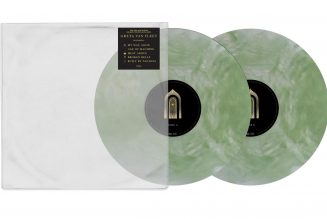
Summary: Specific characteristics of music, rather than genre, play a crucial role in stress recovery. The research, involving 470 participants, identified that stress-relieving songs often share common features, regardless of their musical style.
The study demonstrates that people who listened to music with certain traits recovered faster from stress compared to those who listened to random musical notes. This research highlights the importance of focusing on audio characteristics over genres in music therapy.
Key Facts:
- Stress-relieving songs typically fall into two categories: mellow tunes in major mode or energetic tracks in minor mode.
- Participants in the study who listened to music with these specific traits showed quicker recovery from stress.
- Adiasto’s research emphasizes the personal nature of music in stress relief and suggests the need for music researchers to focus on audio characteristics rather than genres.
Source: Radboud University
Feeling stressed? “Take Me Home, Country Roads,” “Nothing Else Matters” or “Baby One More Time” might calm you down again.
Psychologist and music scientist Krisna Adiasto discovered that music genre doesn’t seem to play a role in the songs we choose to recover from stress, but the songs that work do have shared characteristics. Krisna Adiasto will receive his doctorate from Radboud University on 29 January.
In a society where continuous stress can lead to cardiovascular disease, burnout, and depression, it is important to look for good stress relief. Besides meditating or going for a run, many people listen to music to relax.
“Research shows that music combined with therapy can produce good results,” says psychologist Krisna Adiasto. “But about listening to music by itself, research is unclear. Not everyone feels better after a few songs.”
Musical similarities
Adiasto and colleagues examined what kind of music helps best with stress recovery and why. The researchers used questionnaires to ask 470 participants of different nationalities about the songs that help them feel better after stress. “The answers we got were surprising,” says Adiasto.
“Looking at past research, you would think that most people would choose classical music, but the songs chosen ranged from hardstyle to classical to soundtracks to ambient music.”
A list of 1,296 songs was compiled based on the questionnaires. The researchers found that stress-relieving songs share common characteristics. Adiasto and colleagues categorize them into two groups: mellow songs in major mode, such as “Memories” by Maroon 5 and “Take Me Home, Country Roads” by John Denver, and songs in minor mode that are fairly energetic, such as “Shape of You” by Ed Sheeran and “Nothing Else Matters” by Metallica. The songs are often performed in the key of E, with a moderate tempo in 4/4 time.
Stress task
Two hundred people then participated in an online experiment in which they had to perform a stressful task. Participants then listened to 10 minutes of audio, which fell into one of three groups: researcher-selected music, which was chosen from the previous two categories, self-selected music, or random musical notes.
“People who listened to researcher-selected or self-selected music recovered faster from their feelings of stress than the group of people who listened to random musical notes,” Adiasto says.
“We believe this is because researcher-selected and self-selected music lead to cognitive distraction, which helps people recover from stress more quickly. In addition, self-selected music is associated with positive changes in emotions, which also has a beneficial effect on recovery from stress.”
Recommendations
Although the research of Adiasto and colleagues shows that listening to music by itself does influence stress recovery, Adiasto—who currently relaxes best with classical music—is cautious in making recommendations.
“Music is hugely personal. It’s possible that a song that doesn’t fit within the two categories we identified may still work very well for someone, for example because that person has very pleasant associations with that specific song.”
Adiasto says it is especially noticeable that genre has less influence than is often assumed, which is an important result of the study. He stresses the importance for music researchers to look beyond genres and focus instead on audio characteristics.
About this music and stress research news
Author: Krisna Adiasto
Source: Radboud University
Contact: Krisna Adiasto – Radboud University
Image: The image is credited to Neuroscience News









